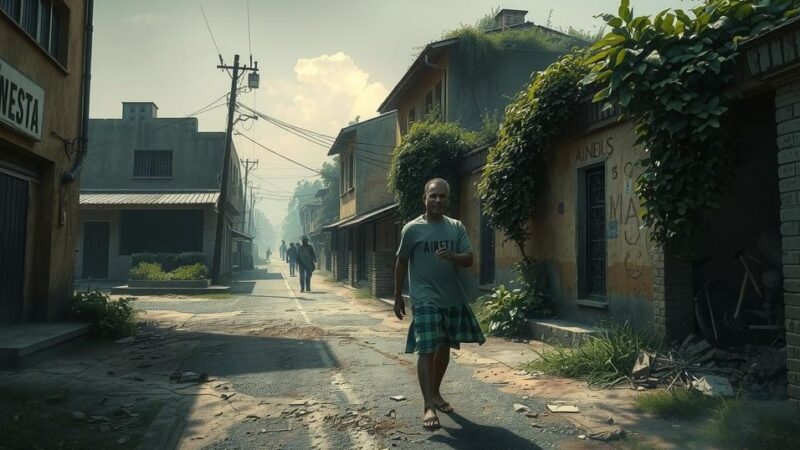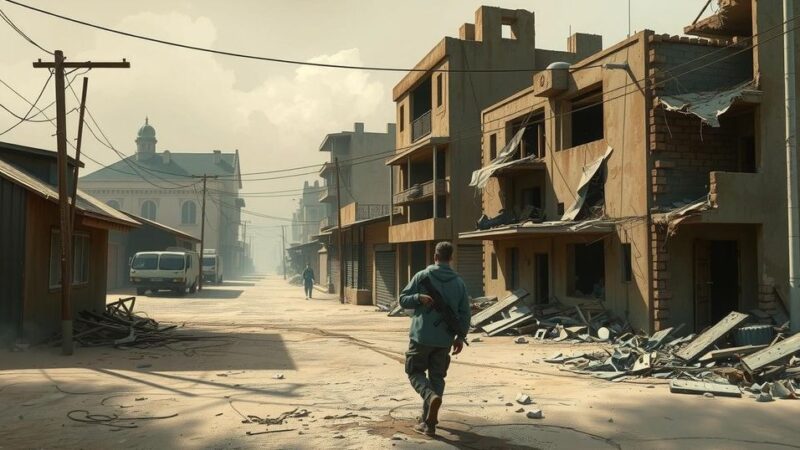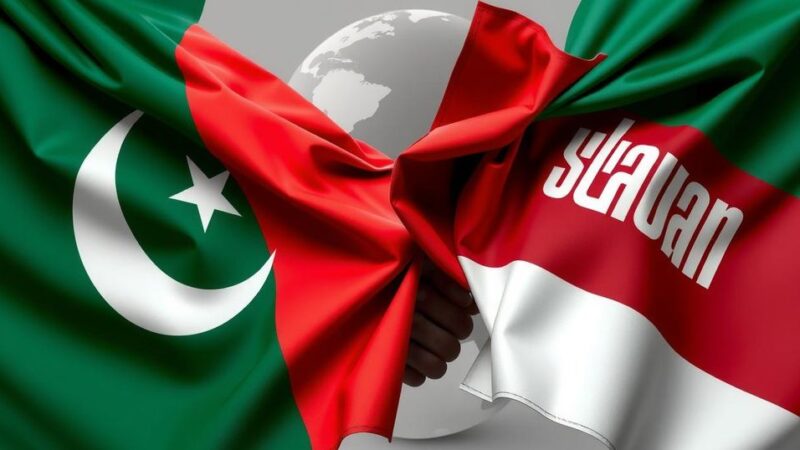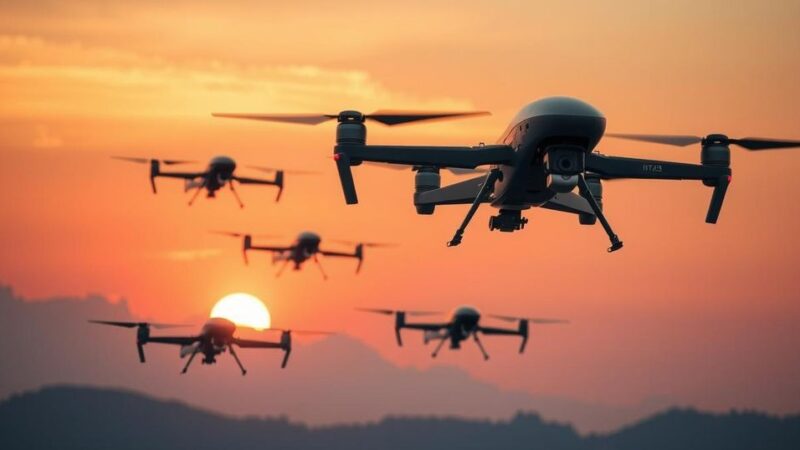In a dramatic escalation of Sudan’s civil war, the RSF has launched drone attacks on Port Sudan, impacting power and water supplies. This marks a shift in tactics, as the RSF attempts to demonstrate military strength following territorial losses. Experts warn that without diplomatic efforts, the conflict could persist for years, raising significant concerns for regional security and humanitarian conditions.
The ongoing civil war in Sudan has reached a new and alarming phase, marked by a series of drone strikes on Port Sudan, executed by the Rapid Support Forces (RSF). This development follows the Sudanese Armed Forces (SAF) reclaiming Khartoum and could signify a strategic shift towards a “shock and awe” campaign, as per experts. As Port Sudan was considered a safe haven, the RSF’s drone attacks are stirring fears among residents and raising questions about the conflict’s future.
The recent drone strikes led to significant power outages and water shortages for city dwellers. Alan Boswell, a specialist at the International Crisis Group, commented on the RSF’s new capability, stating, “It raises the stakes quite a bit.” The assaults demonstrate the RSF’s intent to continue fighting, despite prior territorial losses, and they highlight the increasing role of drone warfare in Africa.
The civil war began as a political tussle between the SAF and the RSF but has since intensified, involving various armed groups and foreign influences. The United Nations has categorized the situation as the worst humanitarian crisis in the world. Drones have become a pivotal tool in this conflict, facilitating military advancements and expanding the RSF’s ability to strike critical infrastructure.
Previously, the RSF mainly utilized loitering drones, which are small UAVs designed to detonate on contact with targets. The recent attacks indicate an escalation, employing swarms of drones to create diversions, although the precise technology behind these UAVs remains uncertain. Reports indicate that globally renowned manufacturers may be supplying advanced drone models, thereby enhancing the RSF’s striking capabilities.
Mahjoub Bushra, commander of the Red Sea Military Zone, described how one assault on a military airbase involved a sophisticated tactical distraction—a swarm of drones designed to mislead defenses. Observers have also noted that RSF’s adaptability to new technologies, like signal jammers, might help them bypass SAF’s anti-drone defenses, although this remains unverified.
The RSF’s aggressive strategy raises potential geopolitical ramifications. Justin Lynch from Conflict Insights Group remarked on the technological dimension of the conflict, asserting that foreign support is crucial for the RSF’s capabilities. The SAF has accused the United Arab Emirates (UAE) of arming the RSF, leading to a diplomatic fallout; however, the UAE has denied such allegations.
Notably, the rising drone warfare has drawn parallels with the ongoing conflict in Ukraine, where similar technology has been deployed. The Sudanese foreign ministry has issued warnings, stressing the risks posed to regional security and navigation in the Red Sea, urging international action against the RSF’s backers.
The RSF’s drone attacks on strategic targets, such as international airports and power stations, signify a dangerous evolution in tactics. Local analysts predict that unless diplomatic resolutions occur, Sudan’s civil war could drag on for years. As Boswell poignantly expressed, the military stand-offs are leaving both local and regional powers in shock, transforming the traditional frameworks of air power and warfare.
In summary, the recent drone strikes highlight a critical turning point in Sudan’s civil war. The RSF’s new tactics not only threaten military balance but also raise concerns about humanitarian impacts and regional security. Without effective diplomacy, the violence may persist unequivocally.
In conclusion, the intense escalation of drone warfare in Sudan has significantly changed the dynamics of the ongoing civil conflict. The RSF’s ability to strike at previously secure locations, such as Port Sudan, has raised critical concerns for regional stability and humanitarian efforts. As foreign involvement shapes the conflict, experts insist that without serious diplomatic intervention, the situation may only worsen in the foreseeable future.
Original Source: www.bbc.com






